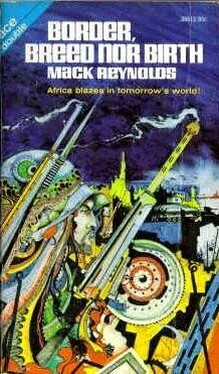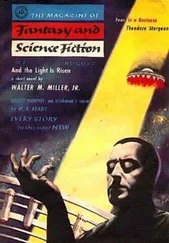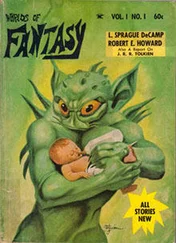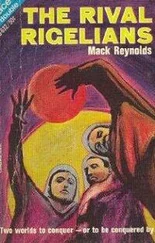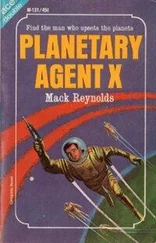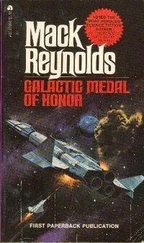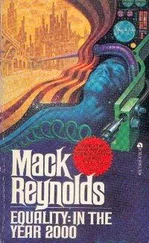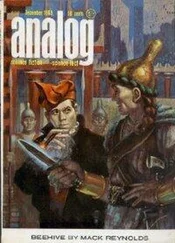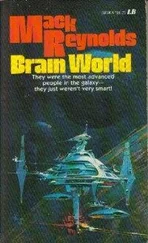As they passed Guémama, who stood slightly aside from the other Tuareg with his uncle Melchizedek, the Amenokal, Crawford nodded and said, speaking to them both, “A messenger from my people to the south. Continue with your newly arrived warriors, O Guémama.”
Cliff Jackson had picked up the folded heliohopper and was now carrying it easily.
Guémama looked at the device and blinked.
Crawford refrained from laughing at his commander of irregulars. “It is not a kambu device. My people deal not in magic. It is but one of the many of the things the new ways bring. One day, Guémama,” Homer’s face remained expressionless, “perhaps you will fly thus.”
The teguelmoust hid the other’s blanch.
In the tent, Homer turned to the Bahaman and motioned to what seating arrangements were available.
Isobel said, “I’ll get some coffee.”
Cliff blurred, “Holy mackerel, if Donaldson here can drop in on us out of a clear sky, what keeps anybody else from doing it? Somebody with a couple of neopalm bombs in the way of calling cards.”
The dried up little man grimaced in his equivalent of a grin and said, “Hold it, you chaps, I want to notify the others.”
“The others? What others?” Crawford said.
Donaldson ignored him for a moment, unslung the small bag he carried over one shoulder and dipped into it for a tiny two-way radio. He pressed the buzzer button, then held it up to his mouth. “Jack, Jimmy, Dave. Here we are. Took donkey’s years, but I found them. You chaps zero-in here.” He left the device on and set it to one side, then yawned and settled himself to the rug-covered ground, crosslegged, Dogon style.
Homer Crawford, even as he sat down himself on a footlocker, in lieu of a chair, rapped, “How did you find us? Who did you just radio? Where’d you come from?”
“I say, hold it,” Donaldson chuckled sourly. “First of all, I’ve come to join up. I thought as far back as that time we cooperated in quelling the riots in Mopti that you ought to do this—proclaim yourself El Hassan. When I heard you’d taken the step, I came to join up.”
“Oh, great,” Cliff said. “What took you so long? We hardly get here, to our ultra-secret hideout, than here you are.”
Isobel came with the coffee and handed it around silently. Then she, too, settled to the rug which covered the sand of the floor.
Rex Donaldson turned to Cliff, and there was a wrinkle of amusement in the older man’s eyes. “I took so long because I needed the time to recruit a few other chaps I knew would stand with us.”
Crawford rapped, “That’s who you just radioed?”
“Of course, old boy. I’d hardly bring the opposition down on us, would I?”
“Where are they?”
“In a couple of hovercraft, similar to your own, possibly twenty kilometers to the southwest.”
“You still haven’t told us how you found us.”
The little man shrugged. “After tendering my resignation to Sir Winton, I considered the possibilities, which narrowed down very quickly when I heard the Arab Legion had taken Tamanrasset.”
“Why?” Isobel said.
Donaldson shot a glance at her. “Because, my dear, unless El Hassan is able to retake Tamanrasset, his movement has come a cropper.” He turned his eyes back to Crawford, who was nervously running his hand through his hair. “I knew you had done considerable work in this area, so your whereabouts became obvious, seeing that Tamanrasset is in Tuareg country. It was simply a matter of finding what Tuareg encampment was your base, and since your quickest manner of gathering supper would be to swing the Amenokal to your banner, I headed for his usual encampment this time of year.”
Cliff looked at Homer Crawford. “If Rex found us so easily, so will anybody else.”
Isobel put in. “Not necessarily. Mr. Donaldson has information that most of El Hassan’s opponents wouldn’t.”
Homer came to his feet unhappily and began pacing. “No, Isobel. Ostrander, for instance, has all the dope Rex has and is just as capable of working it through to a conclusion. It takes no great insight to realize El Hassan has to either put up or shut up when it comes to Tamanrasset. That’s possibly why some of the other elements interested in North Africa have so far refrained from action against the Arab Union. They want to see what El Hassan is going to do—find out just what he has on the ball.”
Rex Donaldson looked at him interestedly, “And? What are your plans?”
Homer Crawford’s face worked. “My plans right at present are to stay alive, and you finding me so easily isn’t heartening. However, it brings to mind some other problems which need solving, too.”
The rest of them fell silent, looking at him. His usual casual humor had dropped away, and his personality gripped them.
He stopped his pacing and frowned down at them.
“El Hassan is going to have to remain on the move. Always. There can be no capital city, no definite base, and it’s going to be a poor idea to sleep twice in the same place.” He shook his head emphatically as though to deny rebuttal, which they hadn’t actually made. “El Hassan’s enemies mustn’t know his location within twenty miles.”
“Twenty miles!” Cliff blurted.
Crawford stared at him, but unseeingly. “Yes. At least half a dozen of our opponents posses nuclear weapons.”
Donaldson demurred, sourly. “A nuclear weapon hasn’t been exploded for donkey’s years and …”
“Of course not,” Homer snapped. “Nor would anyone dare, anywhere else except in the wastes of the Sahara. A nuclear explosion in the Ahaggar would not go undetected and a controversy might go up in the Reunited Nations. But who could prove who had done it? And who, actually, would care if in the explosion a common foe of all was eliminated? But let the Arab Union, or possibly the Soviet Complex, or even others, learn definitely where El Hassan is and a bomb could well devastate twenty square miles seeking him out.” Crawford shook his head. “No, we’ve simply got to keep on the move.”
Donaldson said, even as he nodded agreement, “And what other problems were you talking about?”
“Oh?” Homer said. “Well, keeping on the move will serve to add mystery to the El Hassan legend. It isn’t good for this Tuareg encampment, for instance, to see too much of El Hassan. A leader claiming domination of half a continent looks small potatoes in a desert camp of a few score tents. On the move, showing up here, there, the other place, for only a day or two at a time, is another proposition.”
He thought a moment. “Remember DeGaulle?”
“How could we forget?” Rex Donaldson said wryly.
“He had one angle that couldn’t be more correct. He said a leader had to keep remote, ever mysterious. He can’t afford to have real intimates. Napoleon, Hitler, Stalin—none of them had a real friend to their name. The nearest to friends that Adolph the Aryan ever had, his old comrades of the beerhall days, such as Rhoem, he butchered in the blood purge. And Stalin? He managed to do away with every Old Bolshevik he knew in the days before the Party came to power.”
Cliff was staring at him. “Hey,” he said. “The one other thing one of these mystical leader types needs is a belief in his own destiny. To the point of clobbering all his intimates if he thinks they stand in his way.”
Homer broke into a sudden short laugh. “Any qualms, Cliff?”
Cliff growled, “I don’t know. This dream of yours is growing. Where it might end—I don’t know.”
As they were talking the cries of Ul-Ul-Ul-Allah Akbar! had broken out again.
“Heavens to Betsy,” Isobel said. “Another contingent of camelmen?”
But this time the newcomers were three in number and rode in air-cushion hover-lorries, the twins of that used by Homer Crawford.
Читать дальше
